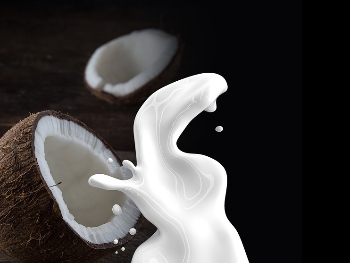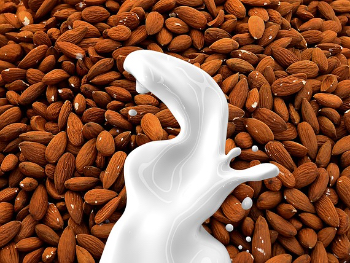

Whether you're making the change away from cow milk for allergies, health reasons, or simply taste, there are a few alternatives to take its place. Most even come in different flavors. Here's a rundown of the choices out there and a little bit about them.
Soy Milk
If you're looking for lots of protein in your milk alternative, soy milk packs the most. Like other "milks", you'll want one that is calcium fortified. Also try to find one that does not contain carrageenan, a thickening agent that could cause gastrointestinal inflammation in some people. The average cup of soy milk is between 100 and 130 calories, has 7 to 11 grams of protein, 20 to 30 percent DV for calcium, 11-13 grams of carbohydrates and has about 3-4 grams of fat. You'll want to choose organic, as soy usually has a high pesticide concentration and research has linked it to some endocrine and thyroid issues. Some folks aren't fond of the aftertaste and thick texture of soy milk.
Coconut Milk
One cup of homemade coconut milk can range from 400-450 calories. It's got about 45-64 grams of fat, which is a lot higher than other options. It has about three to six grams of protein and carries trace minerals such as copper, magnesium, iron and phosphorus. It may not be the milk you'd want to drink everyday, but it's an essential ingredient in many Asian inspired recipes.
Almond Milk
This seems to be the most popular choice these days. It's low in fat and comes in both sweetened and unsweetened. Protein is about one gram per cup and carbohydrates are around eight grams. Though very delicious, it's not the best nutritional choice as a milk replacement, only because it's not that high in protein or calcium. This is one milk that is easy to make at home.
Rice Milk
There is white rice milk and brown rice milk. The brown rice version will give you a little more vitamins than it’s white counterpart. Like other milk replacements, it comes fortified with calcium and vitamins. It’s low in fat and protein, and high in carbohydrates. A benefit of rice milk is that it’s the least likely of the milk alternatives to cause an allergic reaction. Rice milk isn't as thick and is less creamy than a few of the other options.
Hemp Milk
This milk, which is made from hulled hemp seeds, is a good source of omega 3 and 6 fatty acids and contains other essential amino acids. This is a great alternative for folks with an allergy to tree nuts. Hemp milk comes in at about 140 calories, 3 grams of protein, 5 to 8 grams of fat and can vary in carbohydrates from 1 gram to twenty. The only con that a lot of people express is that is doesn’t mix too well in hot coffee and separates.